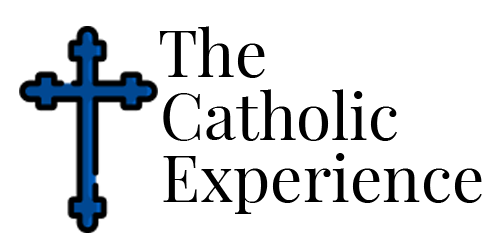Fourth Sunday of Easter
To appreciate the imagery of the gospel, you have to know a little about the role
of the shepherd at the time of Jesus. Scholars tell us that at the time of Jesus,
several shepherds might bring their flocks of sheep at night to a sheepfold, a square
marked off on a hillside by a stone wall; the sheep would enter and leave the stone
enclosure through a gate in the wall. A shepherd might spend the night at this gate,
protecting the sheep and seeing that they did not stray. In the morning, the
shepherd would lead his sheep out, calling each by a special name that he might
have for that sheep. Each sheep knew its name and recognized the voice of the
shepherd. It would not follow a stranger.
This understanding of sheep and shepherd helps us to better understand our
own relationship with Jesus. Jesus says, “I am the good shepherd. I know my own
and mine know me” (John 10:14). It is not sheep that Jesus knows, but rather each
one of us individually and personally. Indeed, he knows us better than we know
ourselves.
And like the good shepherd, Jesus, every day, calls us by name and leads us out
of the relative safety of the sheepfold. He speaks a word to us that enables us to go
forth into the freedom of life in Christ. There are many layers of meaning here;
like any good parable or story, once can look into it and see great depth of possible
meaning. Let’s take a modern-day application of the truths outlined in this story.
One example is “The good shepherd giveth his life for his sheep.” This, in its
application, whatever may be said of the literal parable, is quite true, in reference
to our Lord, who did so, and the pastors of His Church, who sacrifice their
temporal life, as happens every day, in times of pestilence or persecution, for the
spiritual life of their flocks.
Another example is our lives in modern-day times:
Today, living within the sheepfold means having the spiritual protection that
comes from living by the ordinary means of salvation provided by God and His
Church. In other words, by committing no mortal sins. Committing a mortal sin,
by use of our own free will, automatically puts us OUTSIDE the security of the
sheepfold, in the territory of the predators. These predators are the demons who
inhabit the earth - who, in the words of the St. Michael the Archangel Prayer “who
prowl about the world seeking the ruin of souls”.
Stepping outside the protection of the sheepfold and succumbing to sin also has
another very dangerous effect: once outside the sheepfold, the sin we engage in
dulls our spiritual senses, our mind and our conscience, thus making it easier and
more likely we will sin again and again and again. It’s like a water vortex where
you may find yourself spinning faster and faster, descending quickly. Examples of
this effect are some students who leave home for the first time and can make their
own decisions. For others, it’s the toxic environment of a bad home situation or a
bad community in which they live. It’s easy to sin, it’s much harder to pull yourself
out of the cycle of misery and back to Jesus’ waiting arms.
Jesus provided a way back into the security of His sheepfold and that is through
the Sacrament of Reconciliation. Jesus is at the gate of the sheepfold, welcoming
us back in where we can lick our wounds, regain our health and learn from our
mistakes.
Today, people actually debate whether there is objective truth or not and say
there is my truth and your truth, where your truth might be OK for you but not for
me and where even our shepherds in the Church debate whether it’s OK for our
political leaders to say they’re “personally opposed” to some evil but won’t work
publicly to protect others from that evil.
This, I think, is how we apply this parable to our world today. We must all say
that there IS objective good and objective evil. We must not allow people to
muddy the waters by wordsmithing their way to make good sound like evil and
vice-versa. To do so is to step out of the shepherd and be subject to the demons
who “prowl about the world seeking the ruin of souls”.
Staying under Mary’s mantle, under the blood coming from Jesus’ crown of
thorns or within the sheepfold all mean we are protected and can work on our
salvation without external interference which is so devastating to so many people’s
lives.
We live in tumultuous times and so we need a compass that can tell us where
true north is. That compass is the Catechism of the Catholic Church, who with
the Holy Bible and the Deposit of Faith given us by Jesus can help us simplify all
the confusing and downright misleading information we are bombarded with.
Demons do this by use of a four-stage plan of attack on us: deception, then
division, which proceeds to diversion, and ends in discouragement.
Let’s stay true to the church Jesus founded. The one that will never pass away.
Let us pray: Lord God, assist me as I follow the way of Jesus Christ. Help me to
be a shepherd to others, caring for them as Jesus cared for others. Assist me in
ridding myself of my sinfulness and stay forever under the protection of your care.
I make this prayer in the name of Jesus, He who is Lord forever and ever. Amen.
All Rights Reserved | The Catholic Experience
